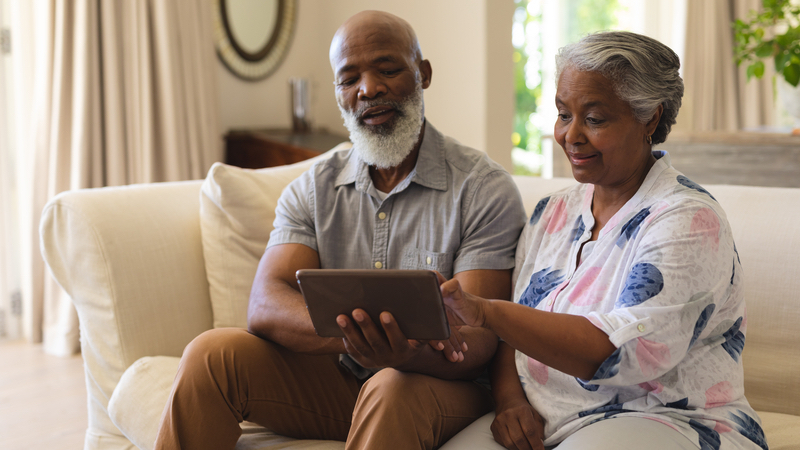Crossword puzzles for seniors are both enjoyable and beneficial. They challenge the brain and engage the mind in ways that support cognitive health.
An 18-month study of people between ages 62 and 80, published by NEJM Evidence, found that playing web-based interactive senior crossword puzzles could actually improve cognition and result in less brain shrinkage in those who already had mild cognitive impairment.
The study indicates that doing a crossword puzzle digitally may have even greater cognitive benefits than doing them on paper.
Brain shrinkage is normal as we age; however, the group in the study that worked on interactive, online crossword puzzles experienced “between 0.5% and 1% less shrinkage in both the hippocampus and the cortex over the course of the 18-month study,” which Harvard Health described as an “impressive difference.”
Maintaining mental stimulation is key to supporting brain health as we age, according to Sanjay Gupta’s book“Keep Sharp: Build a Better Brain at Any Age.” Other important benefits include instilling a sense of purpose, maintaining lifelong learning, and staying connected with others.
In additional to supporting brain health and cognition, senior crossword puzzles promote problem-solving skills and may help to improve vocabulary and language skills.
Getting started with crossword puzzles
 If you’re new to crossword puzzles or haven’t completed one in a while, start with easy puzzles and begin by filling in the short or simple answers first. Then move on to the more difficult clues.
If you’re new to crossword puzzles or haven’t completed one in a while, start with easy puzzles and begin by filling in the short or simple answers first. Then move on to the more difficult clues.
If you’re completing a puzzle that’s in print, use a pencil instead of a pen, so that it’s easy to change your answers if needed.
Try to solve as many clues as you can on your own, but if you get stuck, it’s fine to seek help in order to complete a puzzle. You can use resources like a dictionary or the internet to help you find the answers you don’t know. You can also ask a family member or friend for assistance.
Don’t worry if you can’t complete the full puzzle on your own the first or second try. You’ll get better over time the more you practice, as you become more familiar with common crossword clues, answers and strategies.
If you enjoy completing crossword puzzles, try to make them a regular part of your daily or weekly routines. According to UCLA Health, the frequency you complete crosswords may be closely linked to the level of impact the activity has on cognitive health, but doing a puzzle just once a month can make a difference.
Where to find crossword puzzles for seniors
Crossword puzzles can be found in many newspapers, magazines, and websites. SeniorsGuide offers a free daily senior crossword puzzle that’s challenging but not too complicated for beginners and gives clues and answers when you’re stuck. It doesn’t require any paper. You simply type your answers into the interactive puzzle.
Other games to consider
If you find that you don’t enjoy crossword puzzles, consider other word games that support cognitive health. These include online games such as the daily Jumble, SmartFriends, and Sudoku on Seniors Guide, or Boggle on BoomerMagazine.com.
Research shows that just like completing puzzles and playing board games can help to preserve brain function along with other benefits of play for seniors.
For more on how to keep both your mind and body in good order as you age, check out these healthy aging tips.




